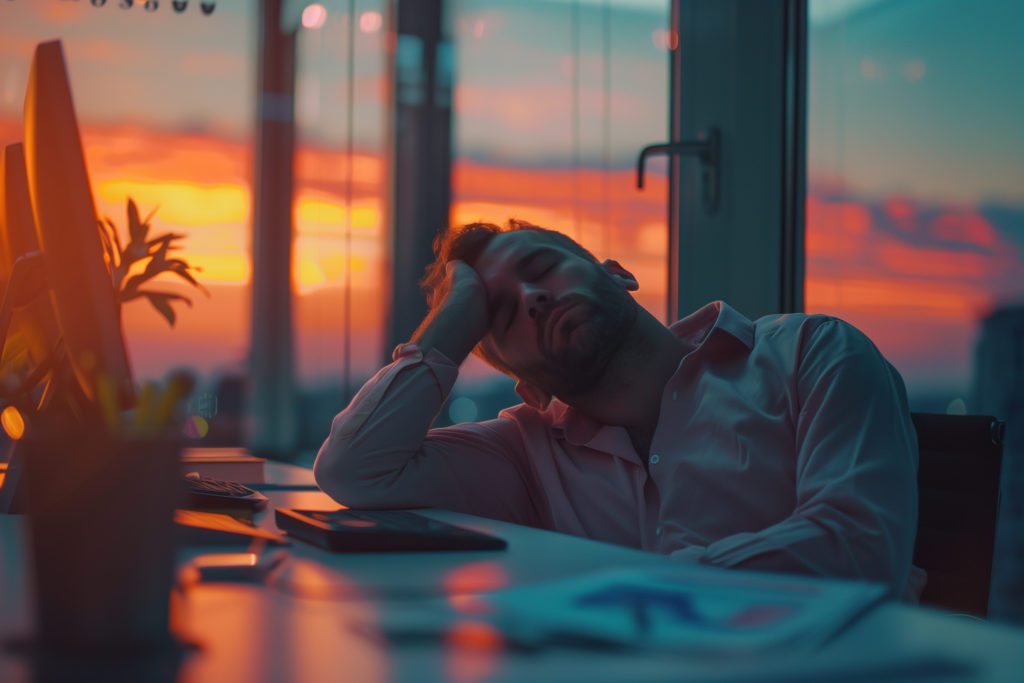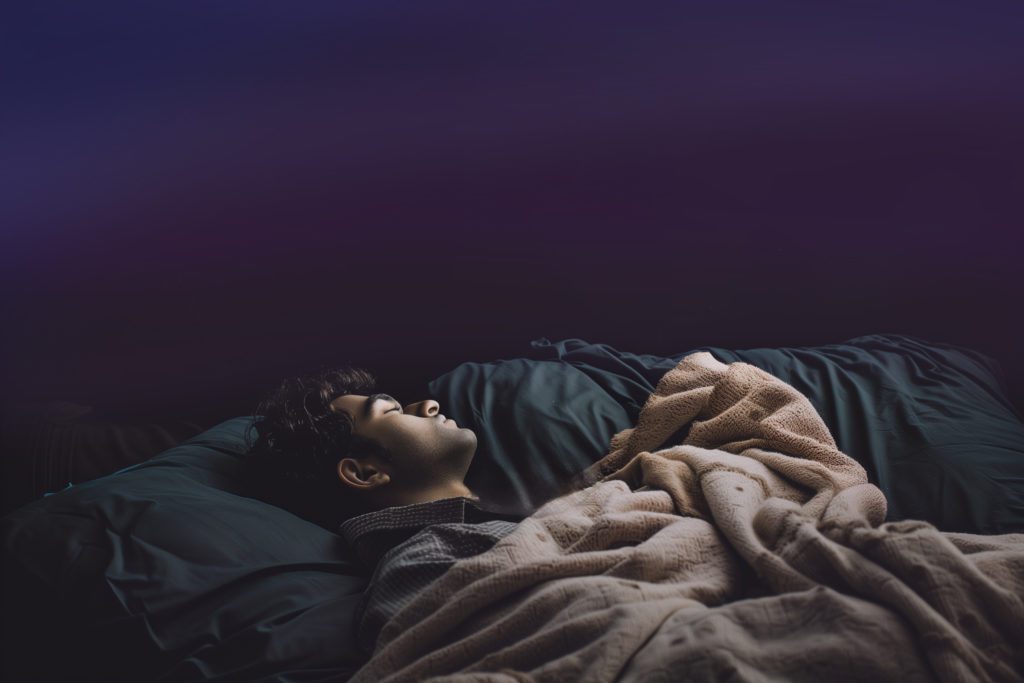
What Are the Harms of Working Out Without Sleep?
Working out at your usual level while sleep-deprived can increase your risk of injury. Explore tips to safely reach your movement goals when sleepy.

The benefits of working out for your physical and mental health have been well-touted, with physical activity a cornerstone of a healthy lifestyle. However, what happens to your physical performance when another cornerstone—sleep—is lacking?
Is it safe to work out if you’ve had a sleepless night and are suffering from sleep deprivation? There are some dangers, but you can also use exercise to prompt a better night of sleep tonight, bringing you back up to your peak performance.
The Dangers of Working Out While Sleep-Deprived
The concern regarding the safety of working out while sleep-deprived is not unusual, especially considering estimates find that around 30% of the world experiences chronic insomnia, let alone those random nights where you cannot fall asleep no matter how hard you try.
Having difficulty falling and staying asleep is just one contributor to sleep deprivation—some people have jam-packed schedules and are unable to find enough time to dedicate to sleeping, leading to night after night of sleep that falls below the body’s needs.
You know that after a night of little sleep, you can expect to feel tired the following day, but can it affect your workout? Yes, let’s explore how.
Increased Risk of Injury
When you don’t have enough sleep, your concentration wanes, your reaction time slows, and your judgment goes out the window. In short, you won’t be able to keep up with your workout, and if you play a sport, you won’t be able to react quickly to what is going on around you. As a result, sleep deprivation can increase the risk of injury.
No Time for Recovery
Sleep is your body’s primary time for recovery, especially for your muscles since they are not used during the hours you sleep at night. While you’re asleep, your body releases growth hormone, which is critical for protein synthesis—with proteins as the building blocks of muscle, this release is crucial for growing muscle and repairing any damage.
However, if you do not get enough sleep at night, your body does not have the time it needs to recover from the stress of your last workout, leaving you ill-prepared for the next one. This cycle can continue until you reach a point of injury because your body was never given the time to recover properly. In fact, research has shown that the risk of muscle injuries is greater when sleep duration decreases, and it stems from inadequate recovery.
Poor Performance
It’s not just that you’re at a greater risk of injury if you work out without sleep, either; research shows that not getting enough sleep can negatively affect your athletic performance. This may mean that you can’t run as fast or as long as you’re used to, or your weight-lifting limit is lower than normal. So, if you try to push through a workout session even though you’re running on fumes, you may end up disappointed by your performance during the session.
Sometimes, this can affect your mental health more than your physical, especially if your sleep deprivation is continual and you see your athletic performance deplete even though you’re putting in the time for training.
Why Don’t I Feel Like Working Out When Tired?
When you don’t have enough sleep, everything seems more difficult because you have so little energy to spare. As such, just the thought of exercising may seem overwhelming, and you may soon start to dread your workouts just because you know how tired you’ll be. Unfortunately, this is not a good base for a healthy relationship with exercise.
When you don’t get enough sleep, aches and pains can also make an appearance, further disintegrating any desire you have to hit the gym. Joint pain and stiffness, body aches, and headaches can all appear when you’re tired, acting as a cue from your body that you’re not in the right place to work out.
Sometimes, the lack of desire to work out is not a matter of needing motivation; instead, it’s your body letting you know that a hard workout is not best for your body at the moment.
The Importance of Exercising, Even When Tired
Even though there are some harms that can come from exercising when you don’t have enough sleep, exercise nevertheless remains a critical part of your health. Even more important, getting exercise during the day can help you sleep better at night. As such, if you want to nip your sleeplessness in the bud and get back on track to superior athletic performance, it is critical that you stay active each day. The key, though, is getting the right kind of activity.
If you’re not sleeping well, and you feel as though you are “off,” opt for a low-intensity workout rather than the intense ones you typically aim for. For example, put down the weights and opt for a walk or yoga instead. These activities allow you to get active while being gentler on your mind and body.
Another key is to choose exercises that you enjoy doing. If you can’t stand to run but love playing basketball, opt for the latter on the days when you’re feeling tired. Any movement is good movement, but the best movement is one that you enjoy doing on days when your motivation is low. As a bonus, the joy you get from partaking in an exercise you enjoy may be enough to banish the sleepiness for a few hours.
How to Navigate a Sleepless Night
If you’ve had one sleepless night or many, your focus should be on getting your sleep back on track, especially if you work out. Missing out on sleep can increase your risk of injury, take away your recovery time, and result in poor performance, making a workout at your usual level dangerous with little sleep.
Exercise is still important, though, not only for your physical health but also for your sleep hygiene. Because of this, opt for low-intensity workouts that you find enjoyable when you’re running on little sleep; this way, you still get your body moving and support good sleep habits without placing yourself in a dangerous situation.

Written by
Jessica G
Medical writer freelancer who has written hundreds of articles on varying topics. Masters of Engineering degree in Biomedical Engineering.
Download Pillow
Get help
Press & News
Legal
Connect
X (Twitter)
Company
Copyright © Neybox Digital Ltd.


